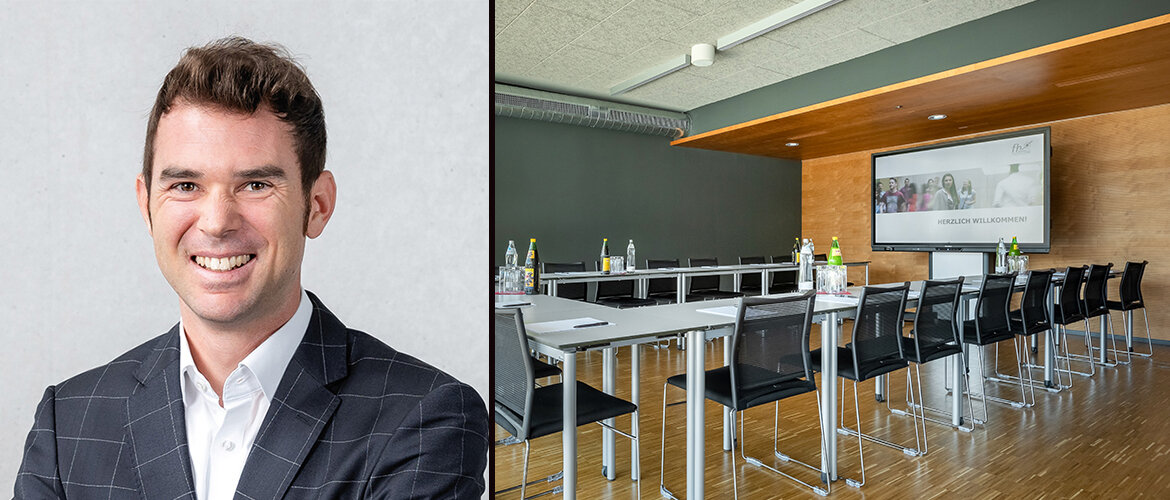A day in a life... of a consultant at KPMG
- 12.08.2024
- General

Dr. Nico Deistler is a university lecturer on the part-time Master's course in ERP Systems & Business Process Management and is also an IT consultant at KPMG.
What is a typical working day like at one of the world's largest consulting firms? Prof. Dr. Bert Neumeister asks and Dr. Nico Deistler, authorized signatory at KPMG in IT consulting and university lecturer on the part-time Master's course in ERP Systems & Business Process Management, answers.
A working day at KPMG is always varied and never the same. Even if the way we work is divided into a pre- and post-corona world. In a pre-corona world, the classic consultant was at the client's premises for four days and usually at their branch office on Fridays. This has now changed to the extent that working from home has become an integral part of the working week. This is also because clients no longer want consultants to be present all the time.
MODERN WORKING ENVIRONMENT IN THE BRANCH OFFICE
A working day in the branch office, which is usually visited twice a week, begins with morning jour fix appointments, which primarily serve the operational management of projects. The day's procedures are heavily organized by appointments via Outlook, and free slots throughout the day have to be found when looking at the calendar in the morning so as not to forget the all-important socializing in the branch office. To make this as pleasant as possible, KPMG offers a very modern working environment that every employee can use as they wish. In addition to free coffee and drinks, the company's repertoire includes single rooms, family rooms, chic conference rooms, chill areas, a gym and many other amenities. A fixed office, as many know it from a working world before Corona, is no longer part of everyday working life, even in management positions. The location of the branch office is usually chosen so that it is close to public transport, so that the journey to the client can also be made quickly.
However, it is a cliché that consultants in such companies work day and night. It is not only the shortage of skilled workers that has led to a rethink in order to attract and retain the company's most important resource - its staff. However, it is also true that this is a project business and that, naturally, longer working hours can occur before project deadlines.
CROSS-INDUSTRY CONSULTING FUNCTION
In terms of content, an IT consultant works across different industries, which makes the profession very attractive. As experience shows that an IT organization or architecture is structured and designed differently in every company, you gain a broad horizon in just a few years of work, which is good to apply in consulting. The contact persons also have a wide range. For example, at a start-up company that needs support in setting up and managing IT, you will have direct appointments with the CEO or CIO. In a corporation, on the other hand, you are in contact with the administrator, who has built up their IT over the years and needs a lot of convincing about the need for change.
An informal atmosphere is a reality from the job interview to communication with the Chairmen of the Board. The teams are generally interdisciplinary, with business IT specialists, mathematicians and lawyers working together to satisfy clients. On the one hand, this requires a lot of communication to keep the project goals in focus, but it also offers scope for flexibility and individual solution approaches. Due to the clearly defined career paths, which allow a promotion to the next grade every year, the age structure is quite low, from trainees at 18 to partners, who can sometimes be under 40 at a young age.
All in all, I can say that joining KPMG after my degree program has enriched me both personally and professionally. I really enjoy working with young, motivated colleagues on solutions for clients and, after ten years, passing on this knowledge to the University of Applied Sciences Kufstein Tirol and thus to young students.
